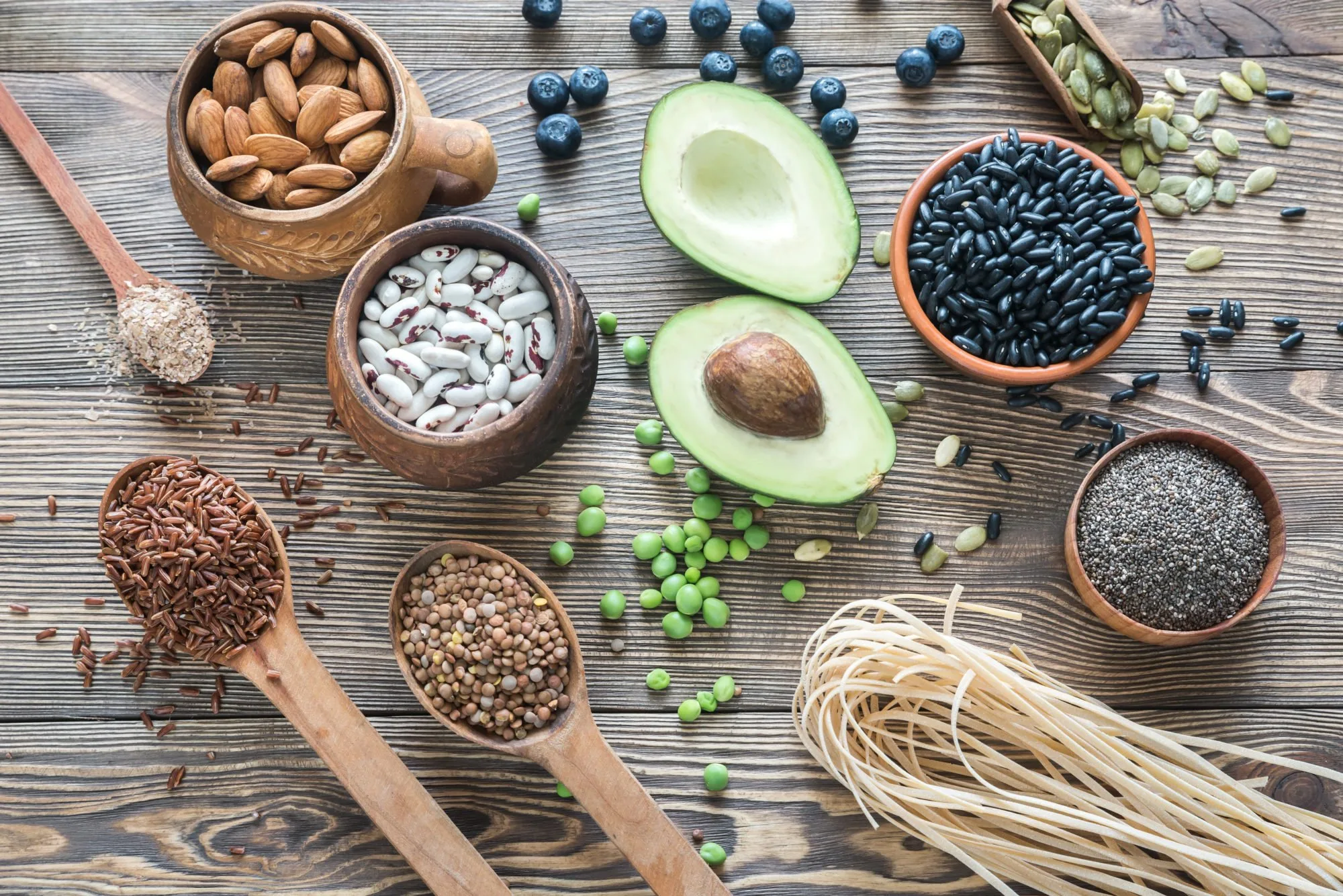There are a lot of diets out there. Some diets claim to help you lose weight, while others promise massive muscle gains. There are even diets that are designed to boost mental wellbeing. With all these options and a huge amount of commentary on the Internet, it can be hard to know which diet is right for you.
The truth is, there is no one particular diet that’s going to turn you into a fitness god or goddess. Each diet has its own set of benefits and negatives. As long as you eat the correct amount of calories that your body needs, obtain the essential nutrients, and stay hydrated, then any diet will do you well, however, what makes diets stand out from each other are the additional benefits and the ease of sustaining the diet.
It’s A Diet World
When we talk about diets, we do not mean those intense and unsustainable ‘get fit quick’ diets. These diets tend to populate a lot of social media platforms. Instead, we’re evaluating some of the most popular diets to build your life around, diets that you can follow for months, even years.
With that being said, here are some of the most popular and widespread diets, ranging from Keto to Intermittent Fasting, as well as their positives, negatives, and overall recommendations.
Keto Diet
The Keto diet, which is an abbreviation of the ketogenic diet, is a low-carb, high-fat diet that has swept the world in recent years, due to its promise of potential health benefits.
It’s a diet that’s really effective in weight loss and is a good diet for those that are currently severely obese. There’re also cases of the diet being really effective in dealing with type two diabetes, as many followers of this diet have been able to put the disease in remission, however, more evidence is needed on this front to determine it’s viability in combating diabetes.
How does it work?
The way the diet works is pretty simple. By drastically reducing carbohydrates and replacing them with fat, your body is put in a metabolic state called ketosis. Being in this state makes your body really good at burning fat for energy, and this type of diet is also great at reducing blood sugar and insulin levels.
There are various forms of the Ketogenic diet. However, they all follow the main basic principle: fewer carbs and more fat. There is the Standard ketogenic diet, which can be broken down as 75% fat, 20% protein, and 5% carbs; High-protein ketogenic diet, which has a 15% increase in protein and a corresponding decrease in fat consumption; Cyclical ketogenic diet, which allows you to have two days a week of eating more carbs; and Targeted ketogenic diet, that allows you to add carbs around a workout.
When on a Ketogenic diet, there is only a certain amount of food you are permitted to eat. This includes meat, particularly red meat, and pork, as well as fatty varieties of fish like salmon, tuna, and mackerel. Eggs are good to have, as well as cheese like cheddar and mozzarella. Avocados are also very worthwhile food to eat on this diet, as there are lots of health benefits when it comes to consuming avocados.
It may sound strange, due to other diets’ encouragement of high fruit and vegetable consumption, but for the Keto diet, it’s critical that you avoid all fruit and root vegetables such as potatoes, carrots, and parsnips. Sugary food is also a no-go, as sugar is just a form of carbohydrates, which also means you should avoid wheat-based products like pasta. It’s also important that you avoid alcohol, as due to its carb content you would turn the ketosis process off.
Is it safe?
There are negatives to this diet, however, and the main one is that for it to work, it needs to be followed strictly. If not, your body will fail to enter a ketogenic state, meaning that you’ll actually store the fats you’re eating, making you put on weight. It can also make you feel extremely tired and fatigued when you first start the diet, and could also see you get an increase of headaches and muscular pain.
5:2 Diet (Intermittent Fasting)
The 5:2 diet is the main diet that utilizes the principle of intermittent fasting. To follow the diet, you simply eat normally for five days a week and then fast during the other two.
The diet seems to have some merit as well, as it’s helped people lose more than 5% of their total body weight; however, it’s no more effective than any other form of dieting. What makes this type of diet appealing is that for many, the idea of sticking to a tough regimen for two days a week rather than seven days seems to be easier to do, meaning that people can maintain this way of eating for a significant period of time. This diet can lead to greater reductions in body fat but can also help with insulin resistance and other chronic diseases.
Following this diet doesn’t mean you have free rein to eat whatever you like on non-fasting days, however. You still need to make healthy choices and follow a balanced diet, while also maintaining physical activity.
Is it safe?
The negatives of this diet are pretty substantial. Firstly, skipping meals can make you feel dizzy and nauseous, which can affect how effective you are when working or performing other daily tasks. It can also affect your mood and make you more miserable and irritable, which can reduce your motivation. Skipping meals can also cause physical pain in the form of headaches and may also dehydrate you if you’re not careful with your water intake. It can also create difficulty in sleeping, daytime sleepiness, and bad breath.
When following this diet, it’s also important to ensure that you’re getting enough nutrients to help with your long-term health. To help with this, you can track your macros to give you a better idea of how well you’re doing. You can learn more about macros and see what is considered to be the correct amount of calories. It is also best to follow a 5:2 diet that’s been written by a dietitian, as this is more likely to be evidence-based. There are also various other forms of intermittent fasting, with some being more aggressive than others, but for now, it’s best to start out with the 5:2 version and then ask your doctor if increasing the number of fasting days would be beneficial.
Dukan Diet
This is an interesting diet as it changes and alters as it progresses. However, it focuses on a low-carb and high-protein diet throughout the process. What’s unique about the diet is that there are no limitations on the amount you can eat, providing that you stick to the rules of the plan.
The diet is broken up into four phases, with each phase designed to introduce new foods into the diet. In phase one, the diet limits you to lean protein that you can only get through a finite number of specified foods, which includes chicken, turkey, eggs, fish, and fat-free dairy. This phase is maintained for an average of five days to instigate rapid weight loss, and during this period, carbs are strictly off-limits, as well as vegetables and fat.
Over the next three phases, there will be a gradual reintroduction of some designated fruit, veg, and carbs until eventually all food is once again allowed. This process aims to instigate a gradual weight loss of 2Ib a week and to promote long-term weight management.
The final phase of this process is continuous and involves having a day each week to only eat protein. Regular exercise is also required.
The benefits of this diet are that the results happen really quickly, which can be motivating. It’s also an easy diet to follow, as you don’t need to weigh food or count calories. Instead, just eat the listed food at the start of the diet.
It can be a difficult diet to get through, though, as you may experience some side effects such as bad breath, dry mouth, tiredness, dizziness, insomnia, and nausea due to the reduction of carbs. Furthermore, the lack of whole grains and food that contains fiber like fruit and vegetables can cause digestive problems such as constipation.
Is it safe?
The rapid weight loss, may not even be sustainable. Also, experts believe that this diet isn’t the healthiest, due to its lack of nutritional balance. This is signified by the need to take vitamin supplements during the diet. There’s also a chance that the diet could increase your risk of health issues if you deviate from the strict rules. As a result, it’s a diet that isn’t highly recommended.
Paelo Diet
The Paleo diet is inspired by food that can only be hunted or gathered. Thus, it is also known as the caveman diet. It’s a regime that’s based on the estimated eating habits of our ancestors during the Palaeolithic era. This was around 10,000 years ago before the development of agriculture.
The food you can eat includes meat and seafood, eggs, nuts, seeds, fruit, vegetables, herbs, and spices. It also means foods like dairy, refined sugars, and potatoes are strictly off the menu, as well as anything that’s been processed.
What are its benefits?
Advocates of the diet claim that sticking to this diet long term can help you lose weight, reduce the risk of diabetes, and limit the risk of heart disease, cancer, and other health problems. More long-term studies are needed on this diet; however, to measure its effectiveness, there are encouraging signs that it can work.
There is no official version of the diet. This then gives followers the freedom to eat within limitations. However, it’s generally seen as a low-carb and high-protein diet.
The diet encourages you to avoid processed foods, while also encouraging you to eat more fruit and vegetables. Avoiding these calorific foods means you can reduce your intake, which helps with weight loss.
Is it safe?
There are no accurate records of what people from so long ago ate. Therefore, this diet is all built on assumptions. It’s also a diet that encourages a vast amount of meat consumption, which goes against current health advice. Furthermore, it also bans dairy and whole grains. They have no reason to be cut unless it’s been medically advised. Also, replacing entire food groups without finding adequate replacements can lead to nutritional deficiencies. This can lead to the need for supplements. If you want to mimic how our ancestors lived, it’s better to match their activity levels instead of their diet.
Vegetarian Diet
Vegetarianism has grown in popularity in recent years as individuals grow more aware of how to help the environment. A Vegetarian diet is one where you eliminate all forms of meat, such as chicken, pork, beef, and even fish. There’s also the vegan diet, which eliminates animal products such as eggs, cheese, milk, and other products like fur.
Vegetarian diets can be great for you. For one, they encourage the consumption of more fruit and vegetables. This means that your body is getting a high number of key nutrients and fiber. However, the diets lack meat and this can be concerning. Healthy meat substitutes include nuts and grains, as these have a substantial amount of protein, as well as green vegetables such as broccoli. In fact, there are plenty of ways to get the protein you need on a vegetarian diet. However, it does require more thought and planning to ensure that you’re getting enough.
There are further potential issues with a vegetarian diet if not maintained well. If people replace their meat intake with carbs, which isn’t recommended but easy to do, then there’s a chance you’ll put on a lot of weight. Vegetarians can also experience mineral deficiencies, most commonly zinc or iron, due to them not eating the correct food; however, if they plan their meals well, this can all be avoided.
Want to know more?
Kate Hudson believes that breakfast is the most important meal of the day. No matter how busy you are, you can always sneak a nutritious breakfast in. That said, here’s how the 41-year-old actress starts her morning with a great dose of antioxidants.







![women [longevity live]](https://longevitylive.com/wp-content/uploads/2020/01/photo-of-women-walking-down-the-street-1116984-100x100.jpg)











Great article! And anyone interested in this stuff should definitely check out okinawa. Its an ancient remedy that gets rid of excess body fat better than anything ive ever tried. Heres a quick review of it here if you want to check it out:
https://okinawaweightloss.weebly.com/
Keep up the great content!